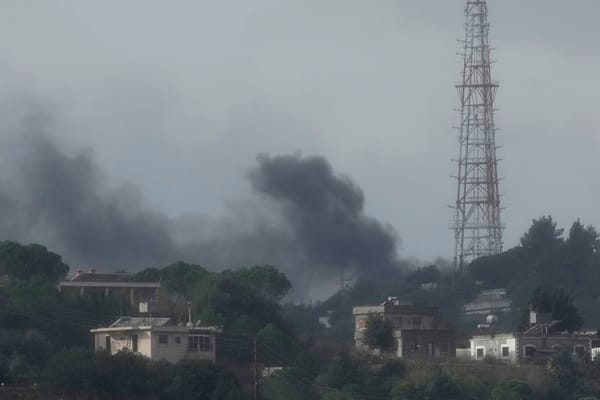In 1991, the French philosopher Jean Baudrillard penned a series of essays for the left-wing daily Libération, later published in book form under the title The Gulf War Did Not Take Place. He is often incorrectly believed to have claimed that the war was some sort of hoax. On the contrary, he argued that the fighting (or rather, the aerial bombing) that did take place shouldn’t be called a “war”—that it would be fairer to describe it as a high-tech atrocity, given the massive power disparity between US and Iraqi forces. Baudrillard insisted that the actual picture of the Gulf War that was transmitted back to the Western public was carefully curated and stage-managed for the media. Accordingly, the stylized spectacle that came to be experienced as “the Gulf War” was mostly a product of the collective imagination.
The relevance of this line of reasoning to Israel’s Gaza invasion has already been explored in these pages. But as the war between Israel and Hamas and other regional enemies has dragged on, something strange has happened. While the disconnect observed by Baudrillard between on-the-ground combat and media-constructed hyperreality remains in effect, the current situation inverts his thesis. Instead of creating a simulacrum of war in the Middle East, actual fighting and dying is now being suppressed and deconstructed to generate a simulacrum of peace.
When Washington dispatched two carrier groups to the region shortly after Hamas’s Oct. 7 attack against Israel, the stated intention was to make sure that no other regional actors would intervene as Israel waged war in Gaza. This gambit seems to have failed.
In Iraq, militant groups have repeatedly struck US bases in Iraq and Syria over the past month. Meanwhile, to protect its citizens from a steady barrage of rocket attacks by Hamas ally Hezbollah, Israel has now evacuated a large area on its northern border with Lebanon, leaving more than 60,000 Israelis internally displaced. The leader of Hezbollah, which has fired more than 1,000 missiles across the border since Oct. 8, announced this month that the group had begun launching heavy “Burkan” (“volcano” in Arabic) rockets. One recent attack reportedly leveled a barracks and other structures within an Israel Defense Forces base. The Biden administration has raised the alarm that Hezbollah and Israel will escalate the fighting further. According to an Axios report, Defense Secretary Lloyd Austin has been pressing his Israeli counterpart, Yoav Gallant, to avoid antagonizing the Lebanese Shiite group any further.
